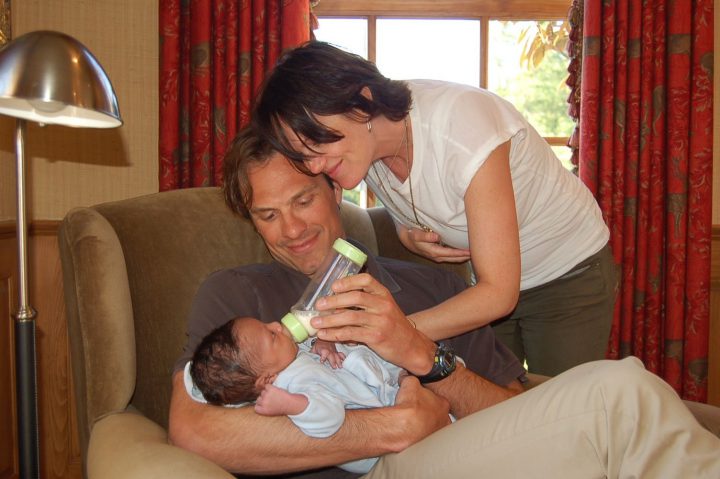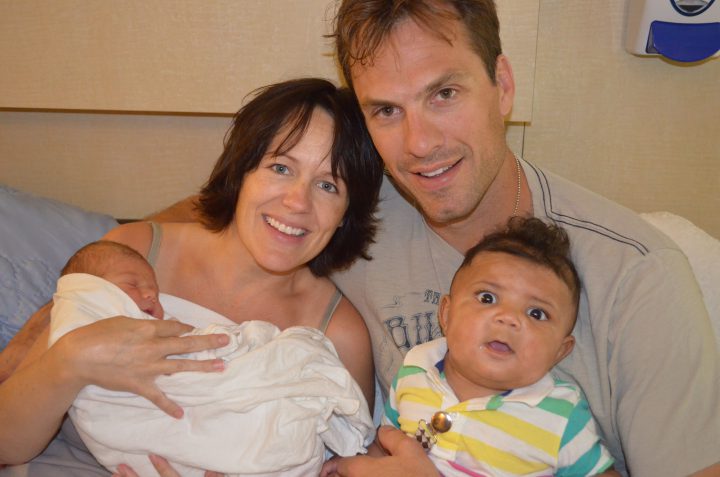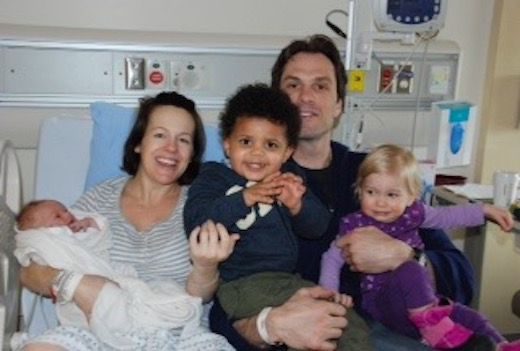Like most parents, Schoena and Jason Strudwick see pieces of themselves in their children.

Kane is burly and competitive like his former NHL defenceman dad but sensitive and affectionate like his mom. Marley has a harder shell like her dad but is “spicy” and a tomboy like her mom. Drew is quirky and book smart, just like his mom.
While the Strudwick’s children reflect their physical and personality traits, they all have different DNA.
Six-year-old Kane is adopted, six-year-old Marley was created with the help of an egg donor and Drew was conceived naturally. How they came to be has no bearing on their parent’s love for them.
“I don’t know how many times we had people say to us when we were pregnant with Drew, ‘Oh my gosh! Are you so excited to have one of your own?'” Schoena said.
“It’s probably the very worst thing you could say to parents like us because it’s taking away what our first son and daughter mean to us.
“There is literally nothing that’s in Drew that is any different than our first two kids.”
READ MORE: Here’s how successful your IVF cycles will be, according to a new study
The Strudwicks are engaged parents, shuttling their children to extracurricular activities on weekdays and devoting Friday nights to G-rated movies and sleepovers with their kids in their master bedroom. The time they invest in their children doesn’t feel like a sacrifice because the road to parenthood was a long one, punctuated with heartbreak.
“(Hope) was one of those things that I never lost somehow and it would have been really easy to,” Schoena said.
The couple began trying for a baby shortly before their wedding in 2006. When nothing happened, they eventually sought out fertility treatments — IUI and IVF — at a clinic in New York where Jason was playing for the New York Rangers.

Get daily National news
“What’s strange is initially when we had all the blood work done, they had thought that Jason was the problem and that there were issues with motility of sperm, or morphology, I don’t remember all the -ologies at this point!” Schoena said.
“What we later ended up finding out is that I was in premature menopause. So it was just my body. The hormones that would normally produce healthy eggs were just not functioning properly. So we weren’t getting pregnant.”
Committed to having a family, the Strudwicks began exploring other options. They started seeing a psychologist, registered for an egg donor through a Seattle clinic and put their name on a waiting list to adopt.
(Story continues below)
“My body was fine to carry, it was just my eggs that were the problem, so we used this anonymous egg donor and Jason’s sperm. First round, we got pregnant and I had never been pregnant so we were over the moon and never once in a million years did we ever think there was a possibility we would lose it.”
They did. Schoena was pregnant with twins and lost both separately during the first trimester.
READ MORE: Edmonton couple embraces heartbreaking infertility by losing 200 pounds
It wasn’t until 2011 — five years after they first started trying for a baby — that good news arrived. Twice. Schoena became pregnant with the help of an egg donor and four months before her due date, the birth mother of a healthy, baby boy chose the Strudwicks out of a stack of 16 potential adoptive parents.
“You hope and pray and wish for this one little gift and blessing and all of a sudden we were like, ‘Oh my gosh we have two babies! What the heck just happened?'”
Less than a year after settling into their new routine, they were in for the biggest shock of their lives. Against the odds, Schoena and Jason conceived naturally.
“I couldn’t believe it,” Jason said. “It was amazing. It was three kids in 22 months and really one each way you can do it.”
Listen Below: How Schoena Strudwick put her infertility struggles aside while working at a maternity clothing store
With the benefit of hindsight, the Strudwicks urge couples navigating fertility issues to reach out, research relentlessly and explore all options. When they set out to have a family, they never imagined it would come to fruition the way it did, but they wouldn’t have it any other way. They hope their experience inspires others.
“You can get through this,” Schoena said. “It might not look on the other side what you envisioned going into this but you are going to get to the other side and it will all make sense when you do.”
Listen to past episodes of Family Matters radio online or on iTunes or Google Play.
















Comments
Want to discuss? Please read our Commenting Policy first.